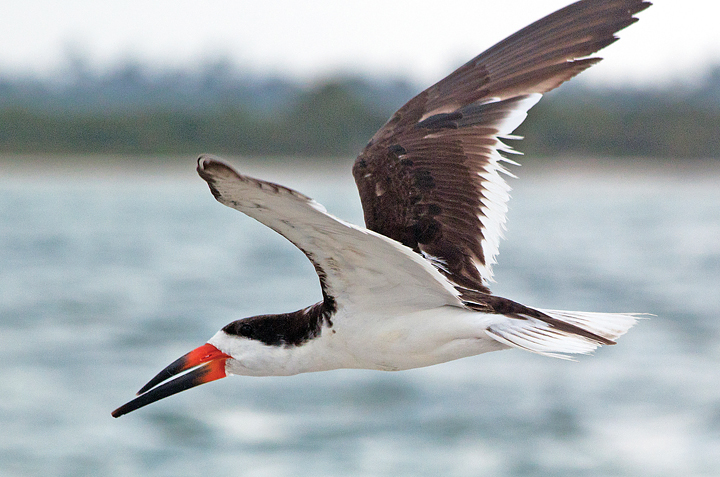Labor Day weekend cues the gradual exodus of a number of Wrightsville Beach’s seasonal visitors, including five species of birds that nest during the summer on the island’s south end.
The shorebirds are migrating south for the winter, ending a season that welcomed the colony’s rebound after 2014’s nesting was interrupted by a beach renourishment project.
One species in particular returned to the island in record numbers.
“We probably had the largest black skimmer colony in the state,” Audubon North Carolina coastal biologist Lindsay Addison said, adding that the 175 nests counted make up about one-fifth of the total black skimmer nests in North Carolina.
In 2014, bird nesting was hindered by a dredging project on the beach strand that lasted well into early summer.
“They didn’t have as much habitat last year,” Addison said. “Just as they were trying to set up a nest, construction was taking off, and their habitat was kind of dredged away.”
Least terns in particular were affected by the dredging, she added.
“They were gone last year, but they’ve returned and were able to nest successfully,” she said.
Each nesting pair typically produces three or four eggs, and one or two of those survive, Addison said. The 175 black skimmer pairings produced 247 fledglings.
Birds lay extra eggs as an “insurance policy,” she said, because even with the protection of the roped-off bird sanctuary, the eggs still face many dangers.
Gulls and crows are the tiny chicks’ main predators at Wrightsville Beach. During the summer, town staff removes the trash cans near the nesting site to avoid attracting the scavenger birds.
“Gulls and crows are very opportunistic. They’ll eat just about anything,” Addison said.
Humans are another threat to the birds. If birds feel threatened by people getting too close they will fly up in the air, attempting to scare away the perceived predator. This potentially creates a deadly situation for the unborn chicks by leaving the eggs exposed.
“They’re very vulnerable to temperature stress,” Addison said. “Even just 10 or 15 minutes uncovered in the heat of the day can result in an egg or chick overheating and dying.”
Audubon North Carolina volunteers removed the wooden posts marking the south end sanctuary on Tuesday, Sept. 8, officially signaling the end of nesting season. A few skimmers and terns can still be seen scuttling by the water’s edge but most have started the journey to northern South America where they will spend the winter before returning to Wrightsville’s shores next spring.
email [email protected]




